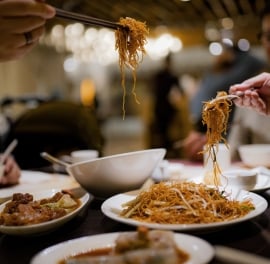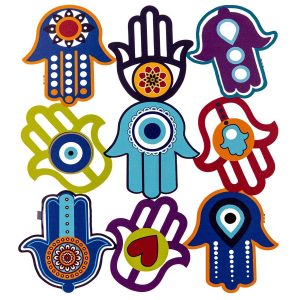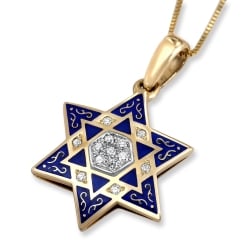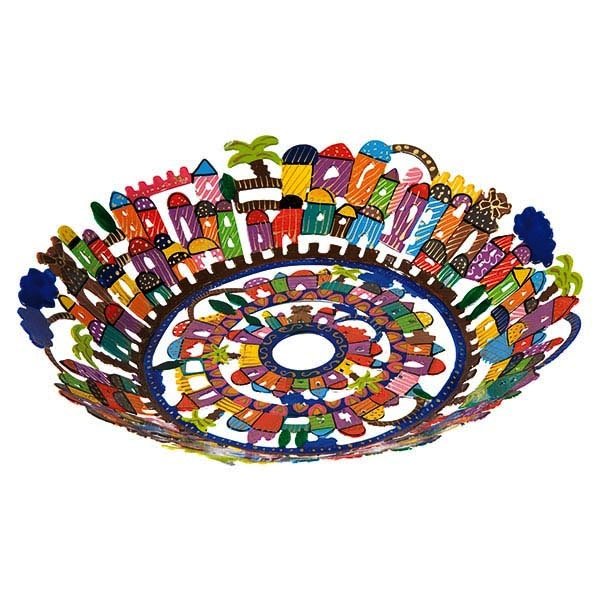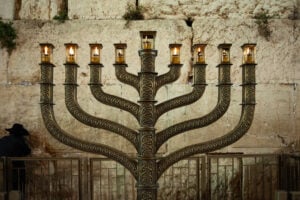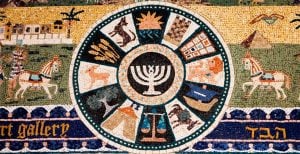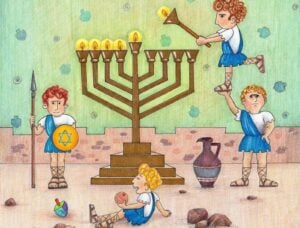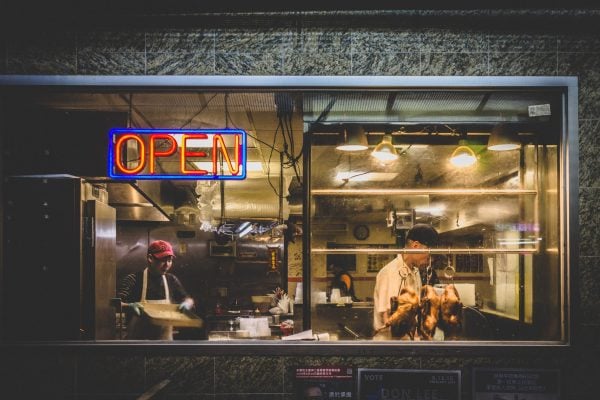
Jews, Chinese Food, and Christmas
Ever wondered why people joke about Jews eating Chinese food on Christmas? Is this a real tradition?
Dig in and learn about the history of the American Jewish love affair with Chinese food, and how it came to be popularly associated with December 25th.

American Jews and Chinese food
Jews have loved Chinese food since the days of Eastern European Jewish immigrants living near Chinese immigrants on Manhattan’s Lower East Side. There are records of rabbis’ complaints from the 1890s about their congregants patronizing non-kosher Chinese food establishments, though this doesn’t seem to have done much to stem the overall trend and the growing Jewish cultural fascination with the cuisine.
The Yiddish newspaper Forverts (The Forward) even coined the term oysessen – “eating out” – in 1903 specifically to refer to the practice of Lower East Side Jews patronizing the restaurants of their Chinese neighbors, and ran many ads for Chinese-American eateries throughout the early 20th century.
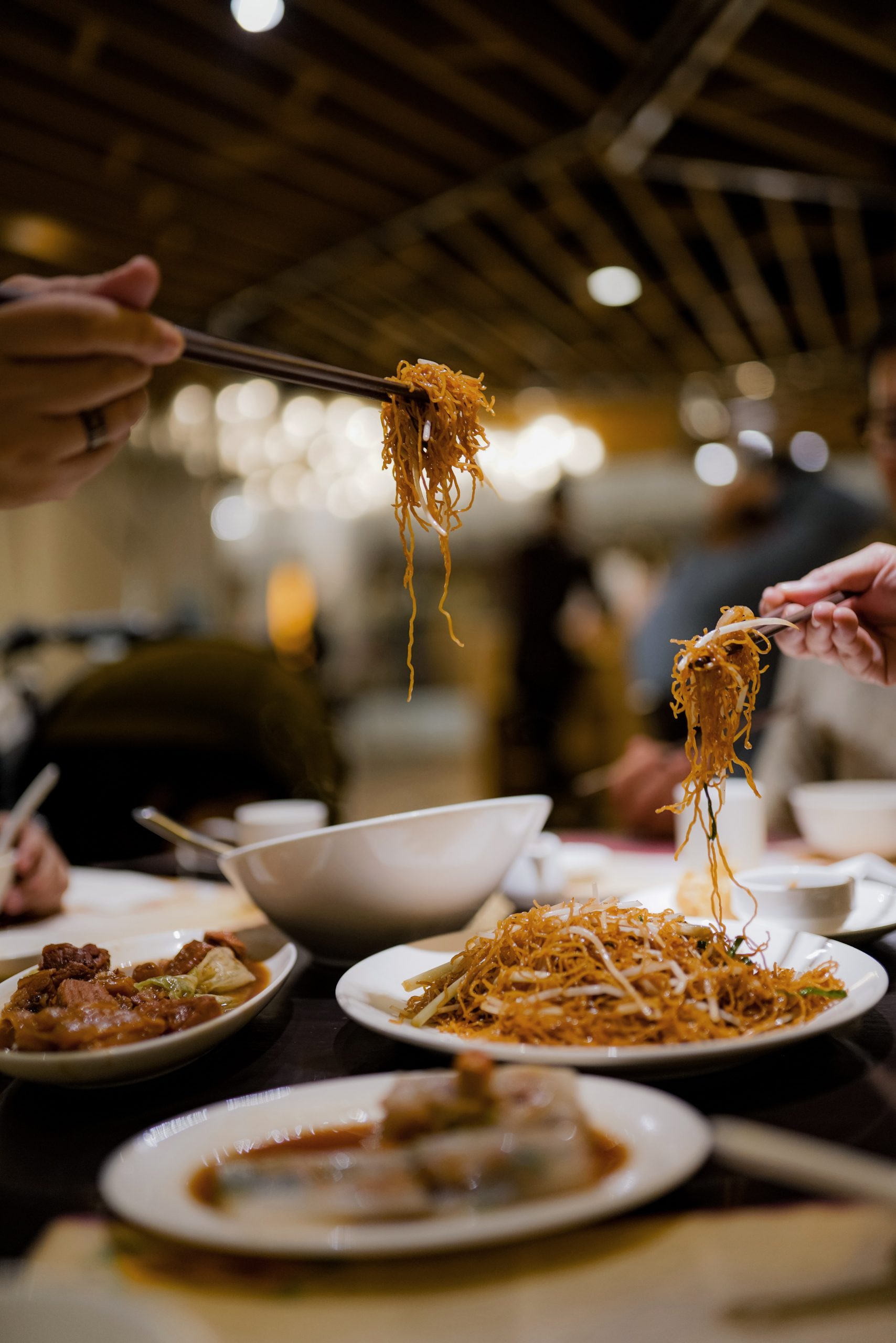
Chinese restaurants offered working- and middle-class Jews of Eastern European heritage the chance to feel sophisticated and cosmopolitan by eating an “exotic” special treat. At the same time, they provided a more comfortable and welcoming atmosphere for Jews than many white-owned food establishments, lacking the Christian-themed décor of Italian restaurants or the general antisemitism of white America. The food, while not actually kosher, didn’t mix meat with dairy, and one could either avoid pork or hide it in an egg roll or dumpling, allowing for a covert way of breaking kashrut that was comfortable for many.
Though it started in New York in the late 19th century, the Jewish-American fascination with Chinese food has spread nationwide, and continues to be a year-round cultural favorite among many Jews to this day (with now even some rabbinically-approved kosher options in certain places).
Check out the most unique gifts and home décor from the Land of Israel, and express your Jewish pride and heritage in a new and fun way.

A December 25th tradition
The specific association of Chinese food with December 25th among New York-area Jewish communities goes back to at least the 1930’s; the New York Times reported in 1935 on Chinese chow mein being specially brought to the Jewish Children’s Home in Newark, NJ, on Christmas Day.
US Jews have always enjoyed getting together with family and friends and doing something social on December 25th – which is a day off work and can otherwise feel isolating in Christian-majority America, unless one is spending it with others who are not observing the holiday either. Chinese restaurants, run by another non-Christian minority and normally one of very few businesses open on Christmas Day, have provided Jews with that social atmosphere and something fun to do on a winter day off for generations.
Chinese-American restaurateurs have in fact long ago noticed Jews as the main group patronizing their businesses around Christmastime, and have even targeted their advertising to Jewish communities.
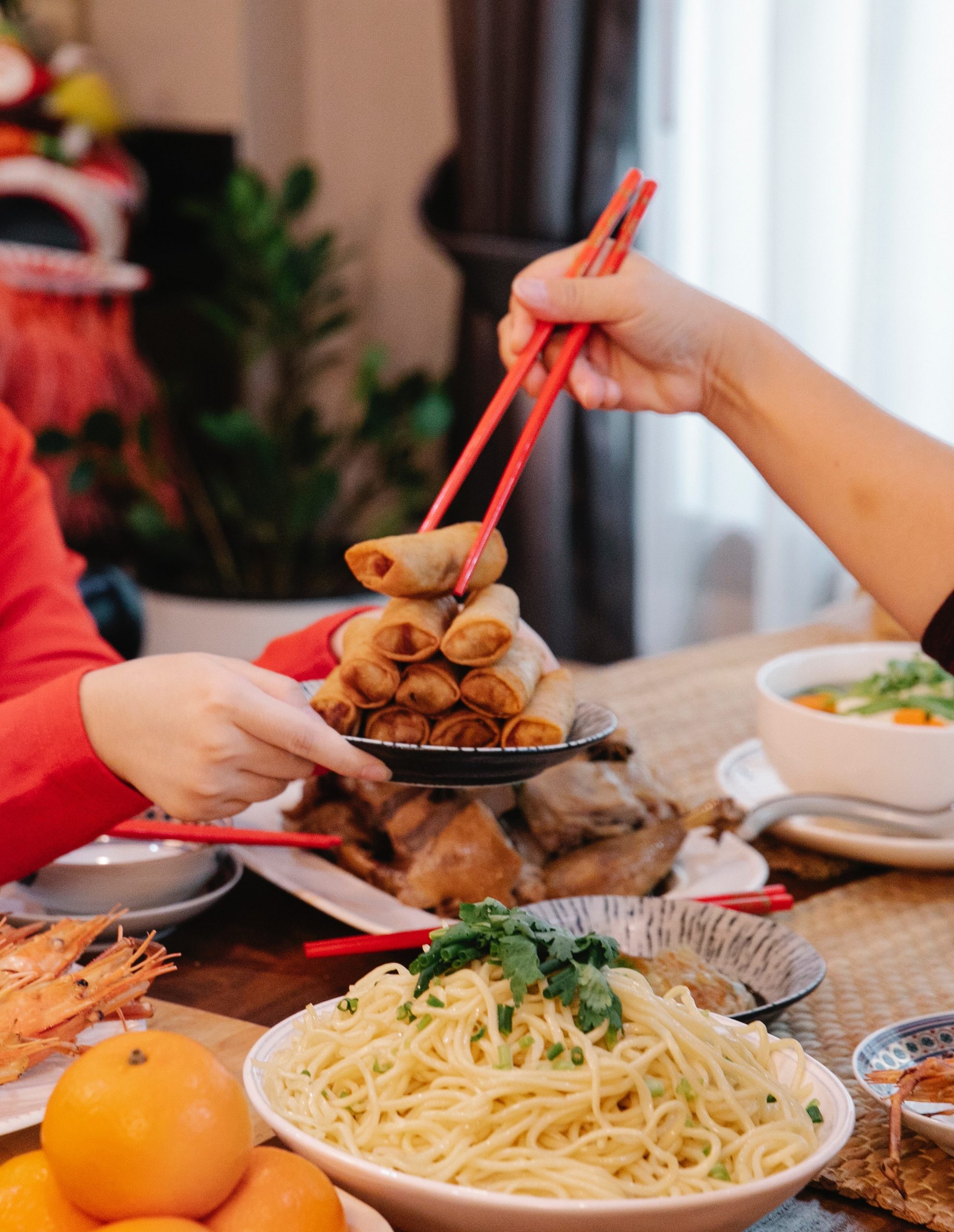
Like the general Jewish love for this cuisine, the practice of Chinese restaurants catering to Jewish patrons on December 25th also started in the New York area, and as Jews moved out to the suburbs and around the country so did Chinese-Americans with their beloved eateries.
Today the American Jewish practice of eating Chinese food on Christmas is often parodied by comedians and TV series and may sound like a joke, but it comes from an actual long tradition – a history of a mutually beneficial relationship between two minority immigrant groups just trying to keep busy on a holiday that didn’t include them.
Shop beautiful Star of David necklaces from top Israeli designers, and honor your Jewish heritage and identity this holiday season.

Taking the custom abroad
This custom of eating Chinese food on December 25th is a uniquely North American practice, borne out of a specifically American social context. However, the association between the date and this specific East Asian cuisine is so strong for American Jews, that some US expats even continue the tradition after moving abroad.
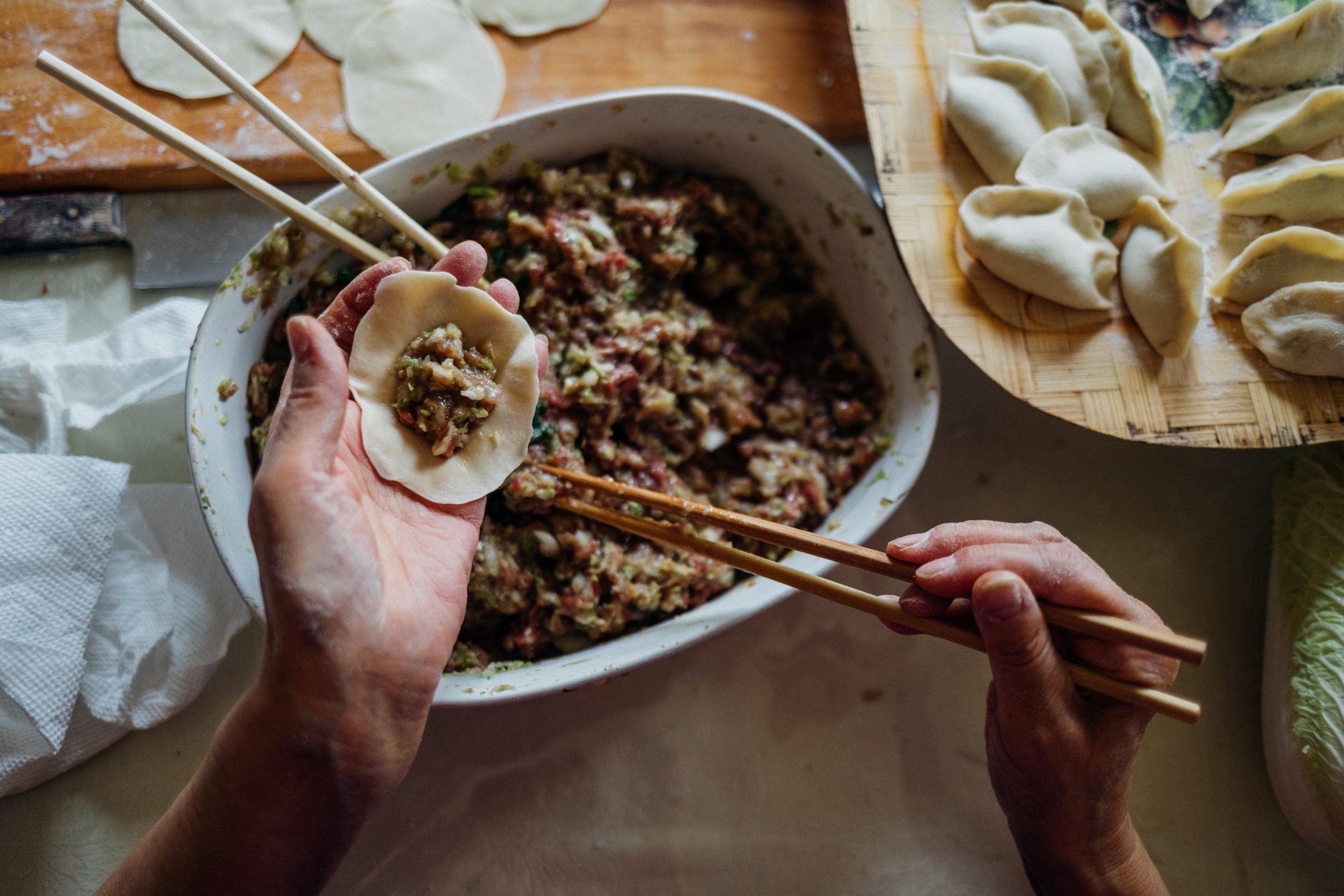
In Israel, where Christmas is a regular workday (when it doesn’t fall on shabbat, like this year) and where Chinese restaurants aren’t nearly as plentiful as in the US, some American Jews still find the time to indulge in their favorite Chinese dishes on or around December 25th – whether by going out, ordering in, or even making their own – and take a moment to honor the unique diaspora culture that they came from.

Loved this article? For other secular Jewish practices and traditions for non-Jewish holidays, check out these posts:
Browse our festive and colorful serving dishes and trays from Israel’s best artists.
